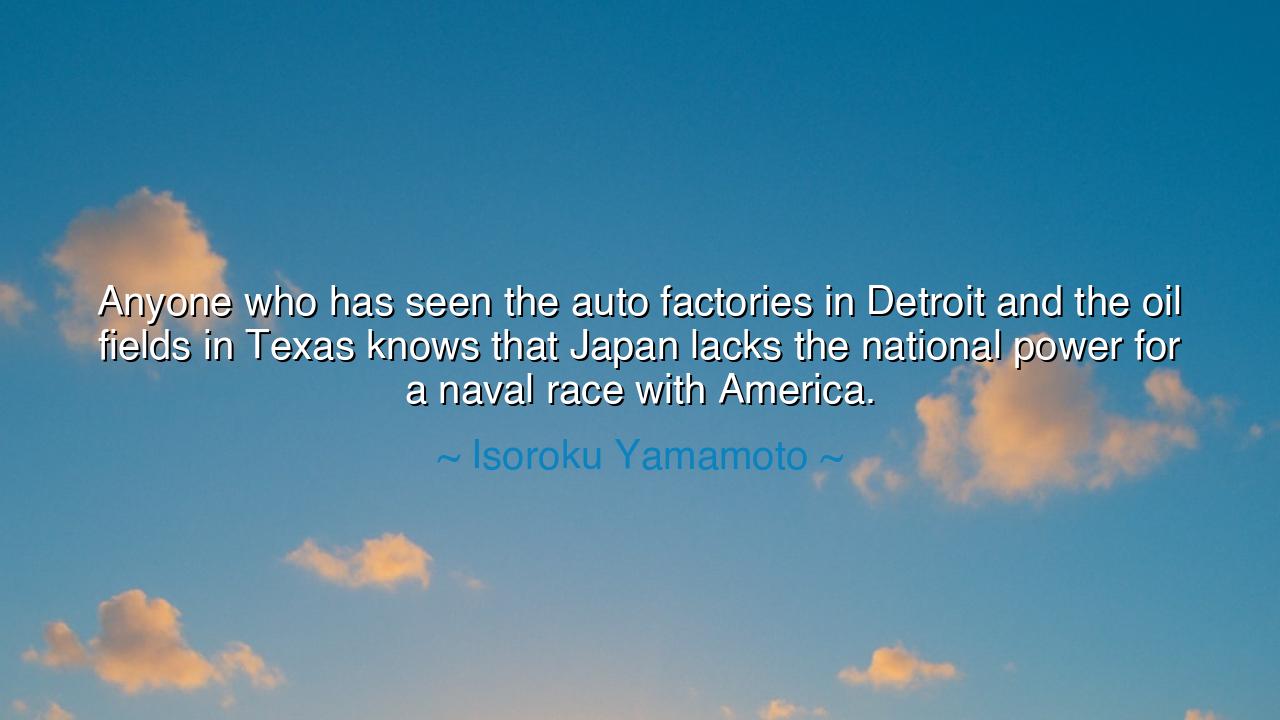
Anyone who has seen the auto factories in Detroit and the oil
Anyone who has seen the auto factories in Detroit and the oil fields in Texas knows that Japan lacks the national power for a naval race with America.






The admiral and strategist Isoroku Yamamoto, who knew both the glory and tragedy of war, once declared: “Anyone who has seen the auto factories in Detroit and the oil fields in Texas knows that Japan lacks the national power for a naval race with America.” In these words he spoke not only as a commander of fleets, but as a prophet of truth, warning that true power lies not merely in ships and soldiers, but in the endless strength of industry and resources that sustain them.
The origin of this wisdom comes from Yamamoto’s own journeys through the United States. He walked the vast halls of Detroit’s factories, where automobiles rolled off assembly lines with the force of unbroken rhythm. He saw the endless plains of Texas, where oil, the lifeblood of modern war, poured from the earth in abundance. From these sights he drew his conclusion: Japan, though fierce in spirit, could not hope to match America in a prolonged struggle of production. For national power rests not in courage alone, but in the engines of supply.
History proved his warning with grim clarity. In the early years of the Pacific War, Japan struck with sudden fire, bringing devastation to Pearl Harbor and triumphs across Asia. Yet as the war dragged on, America’s factories and oil fields became weapons mightier than any fleet. While Japanese shipyards strained to replace a handful of carriers, American yards launched them by the dozen. While Japan rationed fuel, America poured rivers of oil into its navy and air force. Yamamoto had foreseen it: in a race of resources, Japan would falter.
The ancients too recognized this principle. The Greeks at Salamis triumphed not merely by courage, but because they had the ships and rowers supplied by their allies. Rome conquered the Mediterranean not by valor alone, but by the inexhaustible wealth of its provinces. Thus, across time, the lesson endures: the greatness of empires in war depends upon their capacity to sustain war, not merely to begin it.
Therefore, O seekers, heed Yamamoto’s solemn truth: do not measure power only by the flash of swords or the roar of guns. Look instead to the deep wells of resources, the steady hum of factories, the hidden lifeblood that sustains the armies of nations. For courage may win the first battle, but only industry and supply can win the last. And know this also: even the fiercest warrior is undone if he fights against the unyielding strength of a nation’s endless might.






AAdministratorAdministrator
Welcome, honored guests. Please leave a comment, we will respond soon